The BA Photography Studios for Semester 2, 2022 are described below. These are the options for the first and second year students offered under the following course codes:
Photography Studio 1 VART 3593 (1st year)
Photography Studio 3 VART 3597 (2nd year)
Please read them carefully and decide upon your first, second and third preferences.
IMPORTANT – You must not repeat Studios and you must enter three different preferences. Every effort will be made to place you in your first or second preference. Allocations are made on the basis of space available and group balance, with the higher year level being given priority (i.e it is not 'first come, first served').
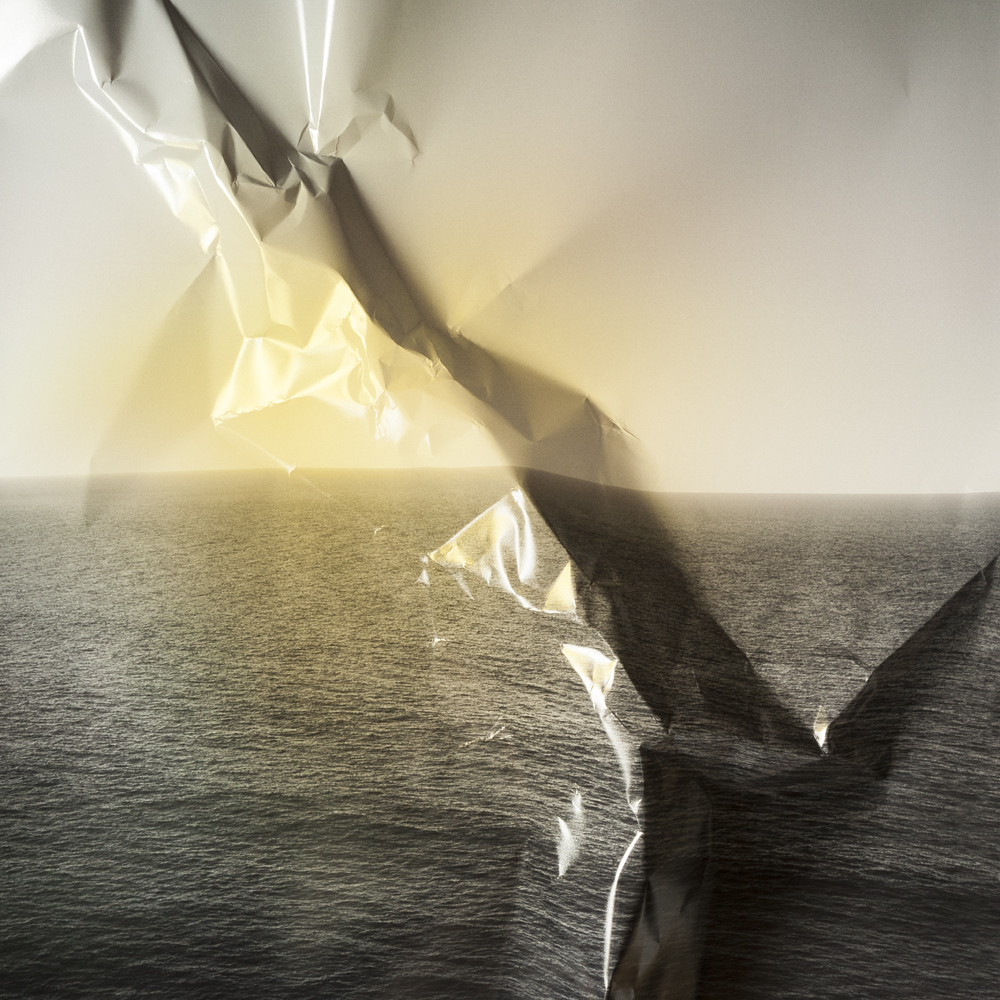
Jo Cicluna & Vivian Cooper Smith, Point Farewell - Cape Schanck #2, 2014
Contemporary Landscape
Landscape photography is more than just an aesthetic experience or beautiful depictions of nature scenes; it is an interpretation of place. In this class, we will contend with what it means to make landscape images today — whether romantic and sublime landscapes, human-altered landscapes, or artistic interventions into the environment. You will engage with the historical development of landscape photography and emerging ideas around what it means to represent nature and place in a contemporary context. Throughout the semester, you will produce photomedia-based work that is informed by an engagement with critical discourses aimed at expanding your understanding and practice of contemporary landscape. Learning activities will include image-based lectures, readings and discussions, presentations, critiques, and fieldwork. Informal and formal reviews of work are central to the course, and a high level of personal engagement and initiative is expected.
Important: this course will include one or more fieldwork day trips during the semester, students should be prepared to attend these which may fall outside of the timetabled hours.
Studio and learning aims:
- Develop technical, conceptual, and aesthetic skills for photographing landscape issues.
- Begin to develop an appreciation of what it might mean to work on Country.
- Develop a basic understanding of the critical discourse around landscape photography.
- Develop and refine the ability to be self-reflective and critically evaluate landscape images.
- Develop the ability to work collaboratively to research, plan, and execute a group project.
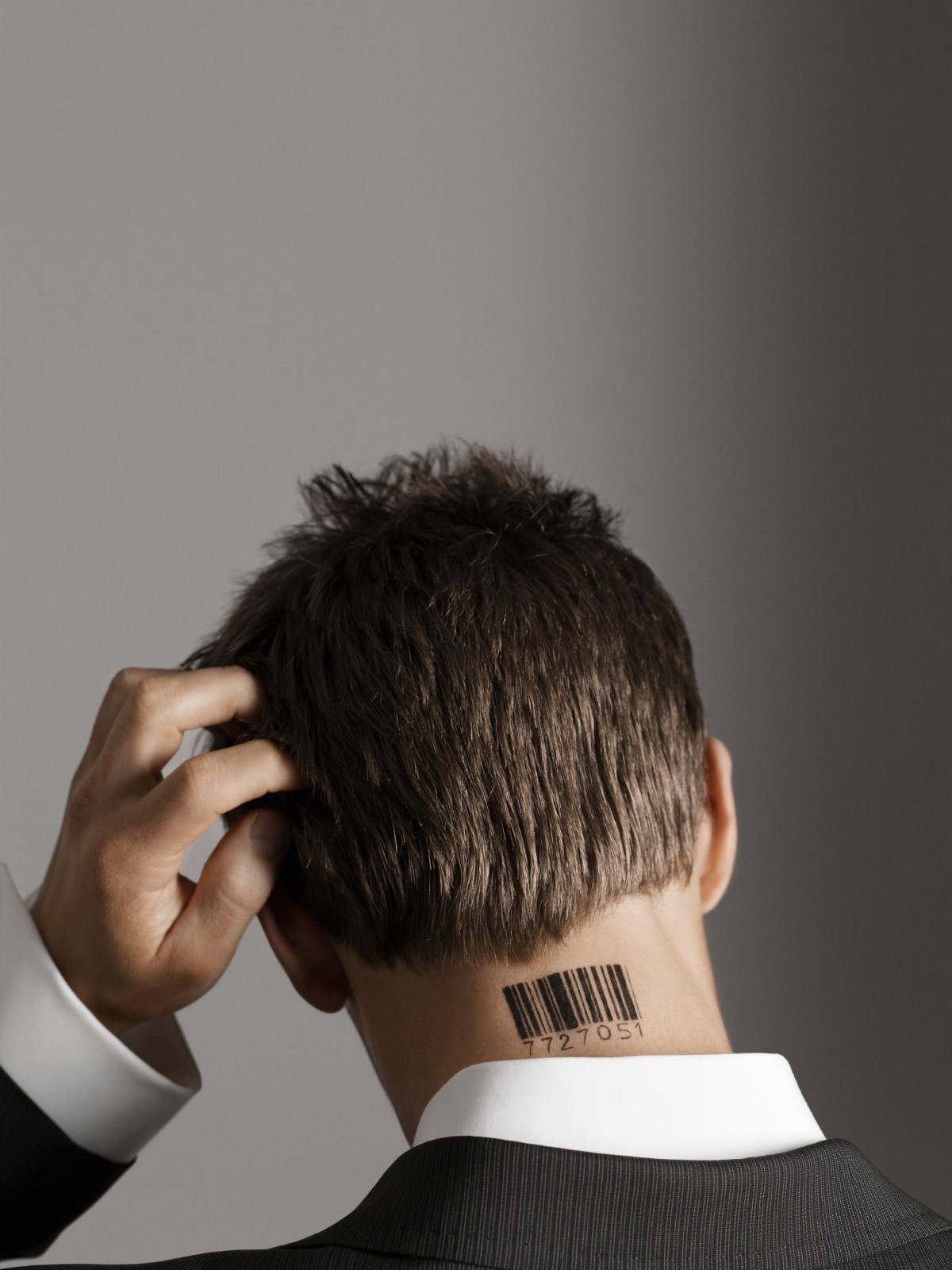
Harari, Y 2011, Sapiens: a brief history of humankind, Vintage Books, London
Fictional Vision
‘What makes power hold good, what makes it accepted, is simply the fact that is doesn’t only weigh on us as a force that says no, but that it traverses and produces things, it induces pleasure, forms knowledge, produces discourse. It needs to be considered as a productive network which runs through the whole social body, much more than as a negative instance whose function is repression’¹.
How might images channel narratives that shape our subjectivities and our culture?
Photography has a problematic relationship with truth. It often presents itself as ‘incontrovertible evidence’ while masking the subjective position of the author. This means it is a persuasive tool for storytelling, but also for naturalising the imperatives of dominant power. Images carry narratives through the fabric of society; stories that shape who we are as individuals and as a society. Yuval Noah Harari maintains that it is through the sharing of stories that the human species has been able to organise on such a grand scale (2011 p.30). Images, as the Lingua franca of globalised society, are an important conduit for the discourse we use to negotiate the shape and contours of our identities and of our collective culture. Images provide ideals; standards against which we measure ourselves and others to evaluate what we collectively agree is normal.
In this studio we will use images to explore photography’s role in dissemination of constitutive and disciplinary narratives; those that play a role in the social construction of our identities, and those that exert a regulatory influence upon us and our culture. We will seek to problematise the ‘normal order’ to expose its regulatory dimensions.
We will look at the fictional aspects of a discipline that has traditionally been associated with evidence to destabilise comfortable notions of truth. In the process, we will encounter notions of figurative visual language, allegory, and implied narrative as well as engage with the often invisible machinations of ‘normalising’ or ‘subjectifying’ power.
Learning will employ lectures, readings, and collaborative visual responses. This studio is applicable and receptive to the practices of students from all areas - World, Art, and Client Centred photography.
Studio and learning aims:
- to engage with modes of photo story telling beyond the merely descriptive
- to identify and explore regulatory dimensions of culture.
- To consider ways in which identities are formed and culture/history is produced.
- To frame practice in relation to historical moment
- to cultivate creative, critical thinking and the development of novel strategies.
- To engage fiction to tell the truth
1 Chul-Han, B 2019, What is power, Polity Press, Cambridge
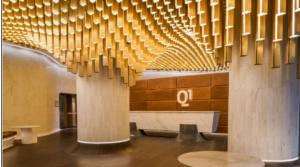
Bren White https://www.instagram.com/brennyshoots/
Translating Dimension: Architecture & Photography
This studio will look at photography’s role in documenting architecture and creating a sense of understanding of the architectural space. Our focus will be on the relationship between the architect, the building, and the photographer. Working with Melbourne-based architects you will gain a practical and theoretical understanding of the role the photographer within the industry. You will be encouraged to develop an individual approach and interpretation while considering the intentions of the architect. You will produce work that is considered and responsive and is the product of communication (with architects etc.) research, planning (developing an individual approach) & innovation.
Studio and learning aims:
- Create an understanding of the photographer’s role within architectural photography and the industry in a broader sense.
- Understand the role of the photographer as a conduit - translating an understanding of the 3-dimensional space to the photograph.
- Develop important technical and practical skills in the craft of architectural photography.
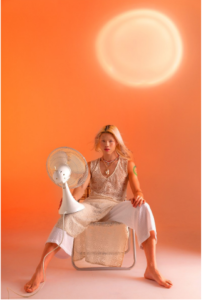
Photographer: Grace Allen - Instagram: @graceallen.photography Website: graceallen.com.au
Stylist: Kitty Le - Instagram @kittyle_stylist
Model: Ye Marvin - Instagram @pilimarvinliangzai
Hair and Makeup: Franchesca Starrson - Instagram @iamfrankiestarrson
Styling Assistants: @samastyling @parfaite.style @jimmyscloset
Mode: Challenging Fashion
In recent times the fashion industry has experienced significant shifts across ecological, socio-political, economic and ideological paradigms. Fashion photography requires reimagining in order to contribute to this discourse.
How might fashion photographers more critically engage with the broader ethical questions facing the fashion industry?
Design, sustainability, power, subversion, gender, body, technology, publishing, marketing, extended realities are all issues that question, provoke and newly negotiate the fashion industry. These recent conversations around ‘fashion’ have been challenging and have invigorated the traditional paradigm with many new possibilities.
Although photography is integral to the fashion industry the images we see rarely challenge. What if fashion photographers, armed with in-depth understanding of the market and industry practices, re-calibrated and re-formed their intention to present ‘fashion’ images that acknowledge the transformative power that the photograph offers?
In this Studio, you will work with and learn from industry professionals, fashion designers, and styling students to explore these ideas. Through demonstrations and workshops, you will learn both technical and professional techniques and strategies relevant to the sector.
Studio and learning aims:
- To interrogate fashion photography through the questioning of current practice, through an engagement with the industry.
- Develop a body of work that addresses fashion photography as a contemporary practice, taking into consideration the complex questions that surround the fashion industry.
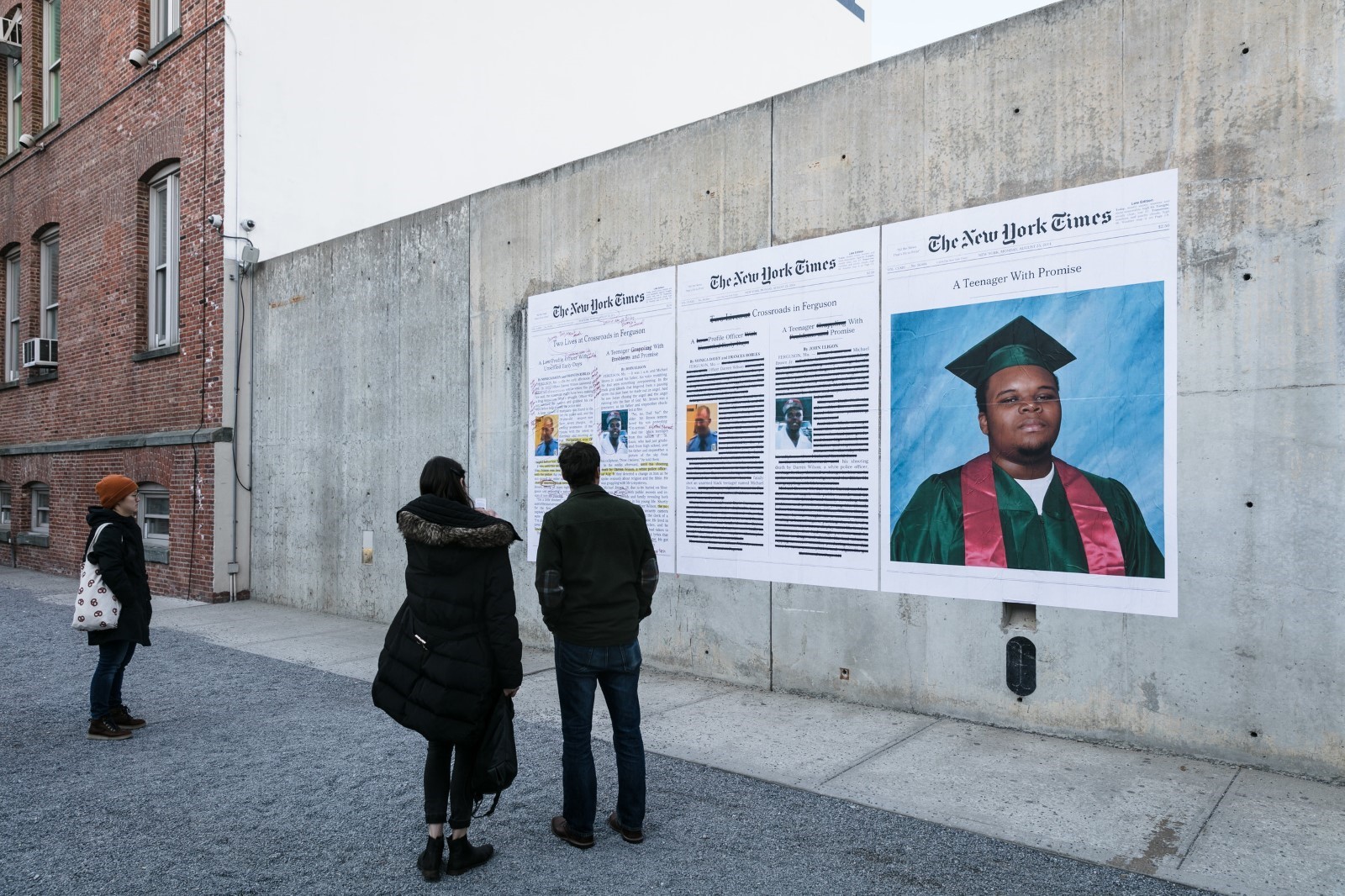
Alexandra Bell 2017, "A Teenager With Promise (Annotated)" MoMA PS1 from the series Counternarratives (Photo: Charles Roussel)
Forms for Encounter & Exchange: The Collingwood Studio
My expertise is in knowing not to be an expert.
– Helguera, Pablo. "Education for Socially Engaged Art: A Materials and Techniques Handbook." (Jorge Pinto Books, 2011).
I don’t want an art that points at a thing, I want an art that is the thing.
– Tania Bruguera in Thompson, Nato, “Living as Form,” Living as Form: Socially Engaged Art from 1991-2011, (MIT Press, 2012).
Meaningful engagement with communities and contexts have become a core part of photography and art practices. These practices employ a range of artistic methods to engage the public in dialogue to affect social change through collaboration with other creatives, communities, and institutions to identify and affect local issues. Driven by a desire for social connection and to activate politics in public space, this ‘social turn’ has renewed conversations about the ethics of collaboration, the contexts of production, and the benefits of civil dialogue. This studio is a critical inquiry into the ethics and politics of collaboration and the social forms for encounter and exchange in creative practice.
In this studio, you will participate in a 12-week residency at Collingwood Yards Arts Precinct where you will collaborate with community partners to co-develop projects that respond to local issues and contexts. You will explore different forms of collaboration through individual exercises and group projects. Classes will take the form of lectures, public seminars, workshops, reading discussions, fieldwork, community consultation, and work towards the development of a shared ethical framework for the Collingwood Studio. Evaluation will privilege practice-led research, ethics, and collaborative aesthetics in relation to the aspirations and values of the partners. Creative outcomes might include community newspapers, photobooks, public artworks, podcasts and radio, community workshops, documentary projects, and public exhibitions.
Community partners have included:
The Social Studio, Bus Projects, Composite, Customs Square (The Hub), Good Cycles Social Enterprise Hub, RHYMS (with Drummond Street Services), Collingwood College, Cultivating Community, The Wellington Centre, The Big Umbrella (with ABC Fact Check), Visual Stories workshop, the Tote, and walking tours with Uncle Colin Hunter from the Wurundjeri Woi Wurrung Cultural Heritage Aboriginal Corporation.
Studio and learning aims:
- Develop skills in active listening and relational ethics.
- Produce a creative project in collaboration with community partners.
- Demonstrate an applied critical understanding of the politics of representation and collaborative aesthetic practices.
Further information:
The studio will be run at Collingwood Yards. It requires a high level of commitment and initiative, in addition to a willingness to work with and learn from community partners. It is always a lot of fun!